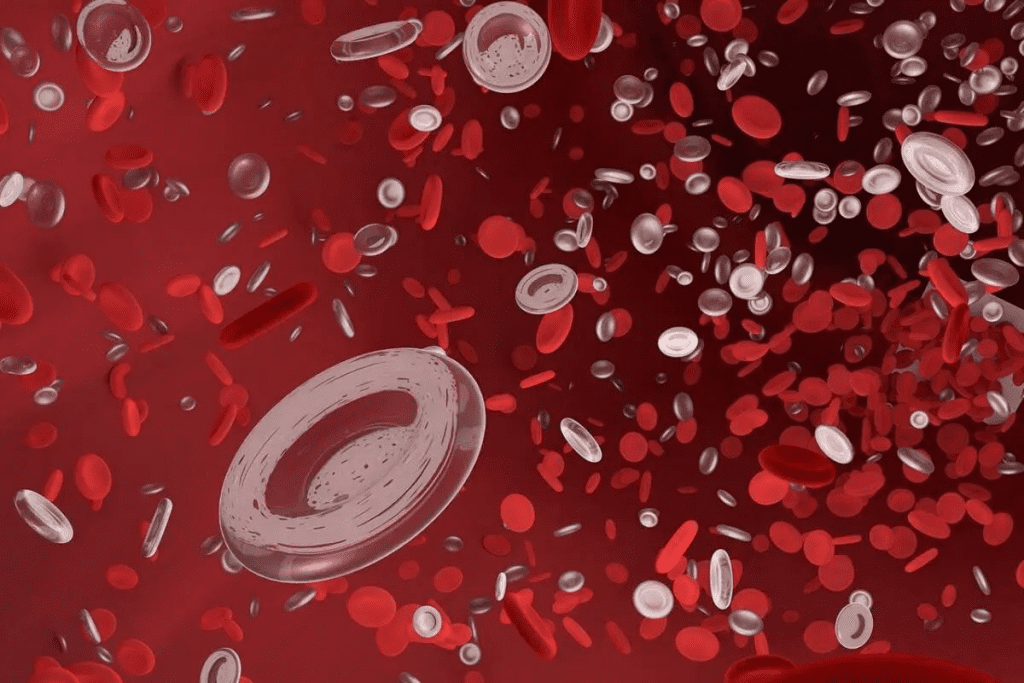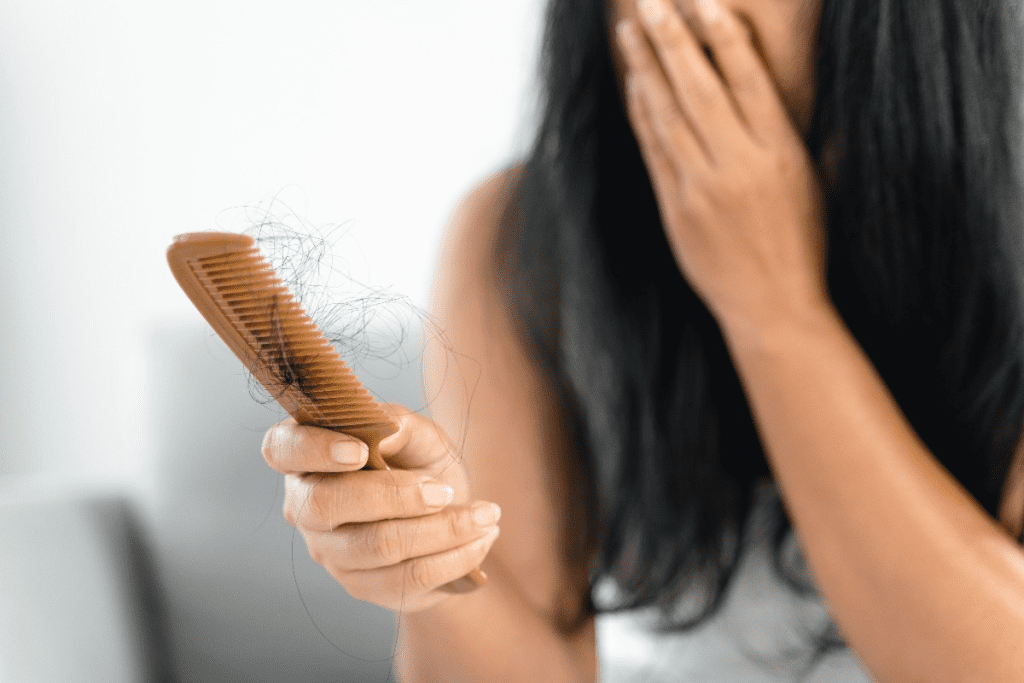Last Updated on November 13, 2025 by

How to increase hemoglobin overnight? Discover if an amazing, rapid boost is possible. Crucial facts and powerful steps for managing low blood counts.
Iron is key for carrying oxygen, making energy, and keeping us healthy. Not having enough iron can make us tired, dizzy, and even lead to anemia. While it’s hard to raise iron levels overnight, there are ways to help increase it a bit.
We will look into quick ways to boost iron levels. Even though we can’t change much overnight, some strategies backed by science can help improve iron absorption a bit.
Iron deficiency can affect your health in many ways. It happens when your body doesn’t have enough iron. This is needed to make hemoglobin, a protein in red blood cells that carries oxygen.

It’s important to know the signs of low iron levels early. Look out for fatigue, weakness, and pale skin. You might also feel shortness of breath, dizziness, and brittle nails. Frequent headaches can also be a sign.
These symptoms can really impact your daily life. It’s key to address them quickly.
Getting iron back quickly is important. It helps prevent iron-deficiency anemia. Timely intervention can reduce symptoms and improve health.
We’ll look at ways to quickly boost iron levels. This ensures people can get back to feeling well.
Knowing about iron and how to keep levels healthy is vital. Being aware of symptoms and taking action can help you control your health.
Exploring the science of iron absorption at night shows it’s complex. The body processes iron in many ways, influenced by the type of iron and other nutrients.

While we sleep, our body works on iron from the day. Heme iron from animals is absorbed better than non-heme iron from plants. This is important for boosting hemoglobin levels.
Other nutrients also play a role in iron absorption. Vitamin C, for example, helps absorb non-heme iron. Knowing how these nutrients work together is key to better iron intake, even at night.
While eating iron-rich foods or taking supplements is important, there are limits to how fast iron levels can rise. The body’s natural iron control and health status can slow down iron increase.
Iron absorption isn’t quick. It goes through several steps, from eating to using iron. Understanding these steps helps set realistic goals for increasing iron levels.
Eating foods high in iron is a great way to boost your iron levels fast. It’s important to know the different types of iron and where to find them. Iron is divided into two types: heme iron, found in animal products, and non-heme iron, found in plants.
Heme iron is better absorbed by the body than non-heme iron. The top sources of heme iron are:
Adding these foods to your diet can really help increase your iron levels.
Non-heme iron is absorbed less by the body but is important for a balanced diet. Key sources include:
Vitamin C can help your body absorb non-heme iron better. Eating foods high in vitamin C, like citrus fruits or bell peppers, with non-heme iron sources is beneficial.
To get more iron in the evening, mix heme and non-heme iron sources in one meal. For example, try grilled chicken (heme iron) with lentils and spinach (non-heme iron) and bell peppers (vitamin C). This mix boosts iron absorption and makes for a healthy meal.
By using these dietary tips, you can increase your iron levels and improve your health.
Timing your iron intake can greatly improve its effectiveness. The body’s natural rhythms and activities like exercise affect iron absorption. Knowing when to take iron is key for the best overnight benefits.
Studies show iron is best absorbed in the morning. Taking iron then boosts its absorption all day. But, if iron supplements upset your stomach, evening might be better. It’s important to balance morning benefits with your personal comfort and daily plans.
Evening iron intake works well for those with tight morning schedules. It also helps if iron messes with your morning meds or meals. Yet, think about how it might affect your sleep.
Iron is most beneficial 30 minutes after working out. Exercise, like cardio, boosts iron absorption. This is great for athletes or anyone who exercises a lot.
Iron at bedtime has its pluses and minuses. It’s good for those with tight schedules. But, it might upset your stomach and mess with sleep. Watch how it affects your sleep and adjust as needed.
To avoid stomach issues, take iron with a small snack or meal. Choose a supplement that’s easy on your stomach to reduce discomfort.
Vitamin C is key in helping our body absorb iron better. This is important for making more hemoglobin. Eating foods high in vitamin C with iron-rich foods boosts non-heme iron absorption. This is a great way to increase hemoglobin levels.
Vitamin C can make non-heme iron absorption up to four times better. Non-heme iron is in plant-based foods and is harder to absorb than heme iron from animals. But, when we eat vitamin C with non-heme iron, absorption gets a big boost. So, foods high in vitamin C are important for an iron-rich diet.
Good sources of vitamin C include oranges, grapefruits, strawberries, bell peppers, and leafy greens like spinach and kale. Adding these to meals with non-heme iron can improve iron absorption a lot.
Mixing vitamin C with iron-rich foods for dinner can help increase hemoglobin levels. Here are some good combinations:
While whole foods are best, supplements can help too. Knowing the right time and amount to take vitamin C supplements is important for better iron absorption.
Adults need about 60-90 mg of vitamin C daily. For better iron absorption, 25-50 mg of vitamin C with meals is recommended. It’s best to take supplements with meals that have non-heme iron.
When using vitamin C supplements, remember:
Iron supplements are key to quickly boosting iron levels. They help reduce symptoms of low iron. It’s important to know how they work.
There are many types of iron supplements. Each has its own benefits and how well it’s absorbed. Knowing this helps you use them best.
Some iron supplements are made for quick absorption. They’re great for those who need to raise their iron fast. Here are a few:
Choosing the right iron supplement is important. Look at the type and how it absorbs to meet your needs.
When you take iron supplements matters. Taking them at night can help your body absorb more while you sleep. Take it with vitamin C, like orange juice, to help absorption.
Be careful of how iron supplements interact with other nutrients. Calcium can block iron absorption. So, avoid calcium-rich foods or supplements near iron supplement time.
Iron supplements can be very effective but may cause side effects like stomach upset or constipation. To avoid these, take your supplement with a small snack or meal at night. This can make your stomach feel better while you sleep.
Also, drinking lots of water can help prevent constipation. This is a common side effect of iron supplements.
By knowing about different iron supplements, timing your dose right, and taking steps to avoid side effects, you can use iron supplements to boost your iron levels overnight. This can greatly improve your health.
To boost iron absorption overnight, we can use several advanced strategies. These methods help our body process and use iron better during sleep. This leads to better hemoglobin levels and health.
Research shows that long fasting can increase serum iron levels. By doing strategic 10+ hour fasting, we can raise our serum iron. For example, eating dinner by 6 PM and not eating again until 8 AM the next day can help.
But, fasting isn’t for everyone, like those with certain health issues or nutritional needs. Always talk to a healthcare professional before starting any fasting plan.
Some foods and drinks can block iron absorption when eaten with iron-rich foods. To improve iron absorption overnight, it’s key to avoid absorption inhibitors before bed. Common inhibitors include:
By avoiding these inhibitors for at least 2 hours before eating iron-rich foods or supplements, we can better absorb iron during sleep.
Drinking enough water is vital for iron processing. Even a little dehydration can hurt iron absorption and use. To help with iron processing overnight, stay properly hydrated all day. Drink at least 8-10 glasses of water a day, and have a small glass of water with your iron-rich evening meal.
A nutrition expert, says, “Proper hydration is key for nutrient absorption, including iron. Even a bit of dehydration can lower iron absorption and use.”
“Water is the most critical nutrient for human life, and its importance cannot be overstated when it comes to nutrient absorption and overall health.”
By adding these advanced strategies to our daily routine, we can improve iron absorption overnight. Remember to talk to a healthcare professional before making big changes to your diet or supplements.
Boosting iron levels overnight needs smart food choices and the right supplements. While some methods can help, it’s key to have realistic expectations for iron improvement. Remember, how to raise hemoglobin levels takes time, and overnight gains might be small.
It takes consistent effort and patience to see big changes in iron levels. Eating foods high in iron, adding vitamin C, and timing meals right can help. Also, avoid foods that block iron absorption and drink plenty of water to aid iron processing.
By following these tips and knowing the limits of iron replenishment, you can make better choices for your iron health. This balanced approach will help improve your iron levels and keep your hemoglobin healthy over time.
Foods with heme iron, like animal products, are absorbed better. But, plant-based foods are also good. Adding vitamin C to your diet can make iron absorption even better.
It’s hard to increase iron levels just by sleeping. But, eating iron-rich foods, vitamin C, and taking supplements can help a bit.
Vitamin C makes it easier for the body to absorb iron from plant-based foods. Eating foods high in vitamin C with iron can really help.
Signs include feeling very tired, weak, and looking pale. It’s important to get iron quickly to avoid getting anemia.
Eating foods high in iron and vitamin C, and taking supplements can help. Drinking enough water and avoiding things that block iron absorption also matters.
Taking iron supplements in the morning or after exercising is best. Taking them in the evening can also help avoid side effects while you sleep.
Quick-acting iron supplements can raise iron levels fast. But, it’s important to take the right amount and at the right time to avoid side effects.
Try fasting strategically, avoid foods that block iron absorption, and drink enough water. These can help improve iron absorption while you sleep.
Eating foods high in iron and vitamin C, and taking supplements can help increase ferritin. Drinking enough water and avoiding things that block iron absorption also helps.
Subscribe to our e-newsletter to stay informed about the latest innovations in the world of health and exclusive offers!